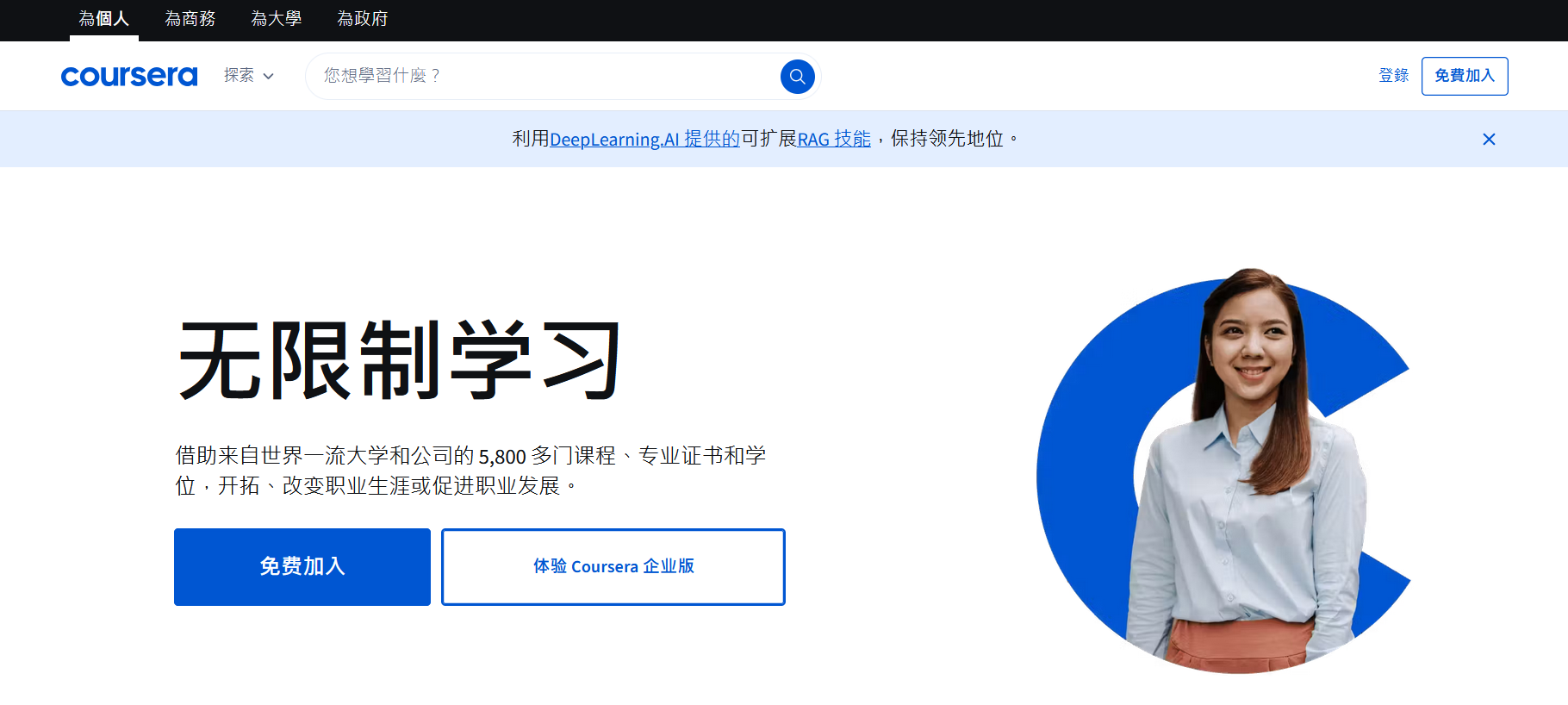Founded in 2012 by Stanford University computer science professors
Andrew Ng and Daphne Koller,
Coursera emerged from the MOOC (Massive
Open Online Course) movement with a mission to "provide universal access
to world-class education." Headquartered in Mountain View, California,
the platform partners with over 300 leading universities (including
Yale, Imperial College London, and Peking University) and industry
giants like Google, IBM, and Meta to deliver certified courses.
Coursera official Website: https://www.coursera.org
Educational Model
Coursera operates on three learning tiers:
Single Courses: 4-12 week programs with video lectures, peer-reviewed assignments, and discussion forums (e.g., "Machine Learning" by Andrew Ng has enrolled over 5 million learners).
Specializations: Multi-course sequences culminating in capstone projects (e.g., UIUC's "Digital Marketing" specialization).
Degree Programs: Fully online bachelor’s and master’s degrees at 30-60% of on-campus costs (e.g., University of London's BSc in Computer Science).
Key pedagogical features include:
✔ Adaptive quizzes with instant feedback
✔ Programming assignments with auto-graded systems
✔ "Coursera Labs" for hands-on cloud-based practice
Technological Innovation
The platform integrates AI through:
CourseMatch™: Recommends courses based on career goals
Virtual Teaching Assistants for 24/7 Q&A
Skill Metrics Dashboards tracking proficiency growth
Mobile app functionality enables offline video downloads and syncs progress across devices—critical for learners in regions with unstable internet (40% of users access via mobile).
Global Reach and Impact
With 136 million registered learners across 190+ countries (35% from developing nations), Coursera supports:
🌍 Localization: Courses subtitled in 50+ languages
💼 Government Partnerships: Like "Coursera for Refugees" with UNHCR
📊 Corporate Upskilling: Used by 2,500+ companies including Airbus and Pfizer
During the COVID-19 pandemic, Coursera provided free access to 3,800+ courses for affected universities—a case study in crisis-responsive education.
Business Model
Revenue streams include:
Consumer: Course certificates ($49-$99), subscriptions ($59/month for "Coursera Plus")
Institutions: "Coursera for Campus" licenses
Enterprises: Custom learning portals for corporations
The platform reported $523 million annual revenue in 2024, demonstrating the viability of freemium education models.
Future Directions
Emerging initiatives focus on:
🔬 VR/AR simulations for vocational training
📜 Blockchain-based credential verification
🤖 Generative AI tools for personalized learning paths
Coursera exemplifies how technology can dismantle barriers to education while maintaining academic rigor. By aligning with workforce needs—76% of learners report career benefits—it continues to redefine lifelong learning in the digital age.



